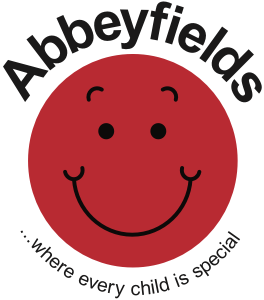Safeguarding means keeping your child happy, healthy and safe in school.
Abbeyfields is committed to safeguarding and promoting the welfare of children and expects everyone involved with the school to share this commitment. Safeguarding is everybody’s responsibility. Our staff are expected to be vigilant and curious about the children in their care; they are aware of how to keep our children safe and what signs to look out for. Our pupils are encouraged to share any concerns that they may have and know that these will be taken seriously. We take action as appropriate to enable all children to have the best outcomes.
The school is committed to working in partnership with parents/carers to safeguard and promote the welfare of children and to support them to understand our statutory responsibilities in this area.
Safeguarding means so much more than being ‘compliant’ with published expectations. At Abbeyfields, we put the children’s happiness and their interests at the heart of all we do. Our safeguarding culture is underpinned through our approach to Ready, Respectful, Safe. Our children come from a wide variety of backgrounds, experiences and starting points. We seek to create a ‘level playing field’ for them to develop personal skills in a safe, secure and nurturing environment.
We carefully check that all staff and volunteers are safe to work with our children. All necessary checks are made including DBS checks, references, ID and employment history. We keep a single central record of all this information and this is regularly monitored. Visitors and volunteers are rigorously checked in much the same way staff are before they can have any unsupervised access to our children. Any contractors on site have to read a safety briefing before being signed into the building. All adults in school wear an ID badge with a coloured lanyard for quick identification.
If you have any concerns at all and wish to talk to someone, please come into school to talk to any of our Designated Safeguarding Leads listed below or telephone them on 01670 513582 or via email [email protected]
Our Safeguarding Children Team:
| Abbeyfields Designated Safeguarding Lead (DSL) | Abbeyfields Deputy Safeguarding Lead | Abbeyfields Deputy Safeguarding Lead |
 |  |  |
| Mrs Gilfillan Assistant Headteacher, Designated Safeguarding Lead, | Mr Ben Henderson Headteacher | Mrs Lorraine Sykes Assistant Headteacher, SENDCo, Senior Leader for Attendance |
| Abbeyfields School Governing Bodylor for Safeguarding | Abbeyfields Deputy Safeguarding Lead | CEOP Ambassador / Online Safety |
 |  |
|
| Dr H Brown Governors information | Mrs W Heide |
If you are concerned about a child, please come and talk to us.
Abbeyfields Contextual Safeguarding
Keeping Children Safe in Education
Working together to safeguard children DfE
Child Protection
As a school, we follow our safeguarding and child protection policy (link above) in order to follow our statutory duties. All staff must report any concerns they have about a child and not see these as insignificant. Staff will not assume a colleague or another professional will take action and share the concern. On occasions, a referral to Children’s Services is justified by a single incident such as an injury or disclosure of abuse. More often however, concerns accumulate over a period of time and are evidenced by building up a picture over time; this is particularly true in cases of emotional abuse and neglect. In these circumstances, staff record and pass on concerns in accordance with this policy to allow the Designated Safeguarding Lead to build up a picture and access support for the child at the earliest opportunity.
All concerns, discussions and decisions made, and the reasons for those decisions will be recorded in writing on the school’s MIS system ( this is an online system to monitor safeguarding, well-being and pastoral issues.)
Early Help
Early help is organised early intervention to provide support as soon as a problem emerges at any point in a child’s life. If early help is appropriate, our DSLs will generally lead on liaising with other agencies including Early Help staff and setting up an inter-agency assessment, as appropriate.
Staff may be required to support other agencies and professionals in an early help assessment and, in some cases, where education is the fundamental factor, act as the lead practitioner. Early help assessments will be kept under review and referred to Children’s Social Care for assessment if the child’s situation does not appear to be improving or is getting worse.
E-Safety
We actively promote and monitor e-safety. We have regular e-safety audits and this supports our comprehensive policy. All pupils, staff and visitors to school must read and sign our Acceptable Use Policy before any access to our systems is allowed. All usage is monitored by specialist software (Senso) and this is backed up by a robust firewall and web filtering. Pupils are taught how to stay safe online and this is regularly reinforced in computing lessons and what to do or who they can talk to if they are worried.
Our Computing Lead is a trained Designated Safeguarding Lead and CEOP Ambassador (Child Exploitation and Online Protection Command, or CEOP Command) where a concern can be reported to advisors that will ensure you get the help you need.
E-safety resources for parents
CEOP
Operation Encompass
We are an ‘Operation Encompass’ school Operation Encompass operates in all police forces across England. It helps police and schools work together to provide emotional and practical help to children. The system ensures that when police are called to an incident of domestic abuse, where there are children in the household who have experienced the domestic incident, the police should inform the key adult (usually the designated safeguarding lead) in school before the child or children arrive at school the following day. This ensures that the school has up to date relevant information about the child’s circumstances and can enable immediate support to be put in place, according to the child’s needs.
Operation Encompass Website
10 things you should know and contact details
PREVENT
Children are vulnerable to extremist ideology and radicalisation. Similar to protecting children from other forms of harms and abuse, protecting children from this risk is part of our safeguarding approach.
The impact of the pandemic, social isolation and a rise in hateful extremism online is creating a situation which is making more young people vulnerable to radicalisation and other forms of grooming.
Prevent is a preventative programme, delivered locally by teachers, healthcare practitioners, social workers, the police, charities, and religious leaders. It places protection around people vulnerable to radicalisation, stopping them from being drawn into terrorism – regardless of the ideology.
Parents, friends and families can also get specialist support to stop their loved ones being drawn into harmful activities or groups, with the launch of ACT Early – a new dedicated safeguarding website and advice line from the specialists at Counter Terrorism Policing (CTP).
If you are worried that someone you know is being radicalised, visit http://www.actearly.uk/
For help and advice visit www.actearly.uk, or call the national Police Prevent Advice Line on 0800 011 3764, in confidence, and specially trained Prevent officers will listen carefully to your concerns.
Attendance
Please support us by ensuring that your child attends school regularly – this is a parents’ legal responsibility. Failing to attend school on a regular basis will be considered as a safeguarding matter. Any absence affects the pattern of a child’s schooling and regular absence will seriously affect their learning. Any pupil’s absence disrupts teaching routines so may also affect the learning of others in the same class.
Absences are reported as follows:
- Call the office on 01670 513582 and leave a message (there is a dedicated absence line)
- Email [email protected]
- Send a message via the My Child At School app.
We expect all absence from school to be reported as soon as possible and at least by 9.30 am on the first morning of absence. If we do not hear from parents or carers, we will systematically go through each of the contacts we hold for the child until we are able to speak with someone. If we are unable to speak with anyone, the absence will be recorded as unauthorised and this will be followed up with a letter and reminder of our correct reporting procedures.
If you would like to discuss any aspect of attendance or any concerns you may have contact the Headteacher.
Behaviour
Our school has high expectations for pupils’ behaviour and conduct. We expect and model good manners and kindness. These expectations are commonly understood and applied consistently and fairly. You will see positive behaviour and conduct across Abbeyfields and all children know our saying #choosekindness. The school has a diverse intake regarding pupil needs. When children find it difficult to follow expectations, staff work patiently, with determination and compassion to support them to overcome these difficulties.
Low-level disruption is addressed effectively. Our staff manage pupils’ behaviour well. Classroom staff and leaders make sure that pupils follow appropriate routines, such as Ready Respectful, Safe. The children show perseverance and resilience in lessons. Mistakes are ‘good’ and staff use the growth mindset approach to encourage the children to try their best.
Sexual violence and sexual harassment can occur between two children of any age and sex from primary to secondary stage and into colleges. It can also occur online. At Abbeyfields, staff have been made aware of the importance of:
- Challenging inappropriate behaviours
- Making clear that sexual violence and sexual harassment is not acceptable, will never be tolerated and is not an inevitable part of growing up
- Not tolerating or dismissing sexual violence or sexual harassment
- Challenging physical behaviours
- Dismissing or tolerating such behaviours risks normalising them
Curriculum
At Abbeyfields, we have a calm, secure and encouraging environment where children feel safe and their holistic development is enhanced through the delivery of our whole school curriculum, including our PSHE/RSE curriculum, curriculum drivers, work with external agencies, and other communities. We have identified opportunities across all curriculum subjects to directly teach the children about keeping safe/and safeguarding. Please see the curriculum section for further information.
Health and Safety
We work hard to ensure that our site is as safe as possible. Staff closely supervise the children in all areas of the school and they are visible and available to talk to at all times. The grounds are checked by the caretaker every day and the building is maintained to the highest standards. External experts come regularly to ensure everything is fully functioning and safe – fire safety, water, electrics, etc
The premises are accessible to pupils, parents and staff with disabilities.
We carry out regular fire alarm and evacuation tests and all of this is recorded in our Fire Log. An annual Fire Audit and risk assessments reviews are carried out regularly.
Our catering facilities meet the highest standards of hygiene and they are checked regularly by Environmental Health. We also meet the nutritional standards in place nationally and we are proactive and knowledgeable about the food of all pupils with allergies.
Our Health & Safety team includes the Chair of the School Governing Body and representatives from across the school. They meet to discuss all matters of health and safety to ensure the school complies with and goes beyond all national and local health & safety regulations.

